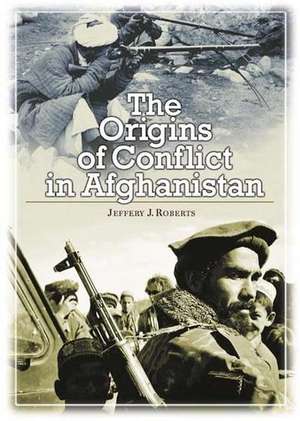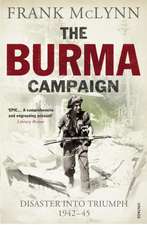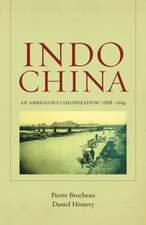The Origins of Conflict in Afghanistan
Autor Jeffery Robertsen Limba Engleză Hardback – 29 dec 2003 – vârsta până la 17 ani
Preț: 499.58 lei
Preț vechi: 689.71 lei
-28% Nou
Puncte Express: 749
Preț estimativ în valută:
95.68€ • 98.58$ • 80.15£
95.68€ • 98.58$ • 80.15£
Carte tipărită la comandă
Livrare economică 22 februarie-08 martie
Preluare comenzi: 021 569.72.76
Specificații
ISBN-13: 9780275978785
ISBN-10: 0275978788
Pagini: 288
Dimensiuni: 156 x 235 x 26 mm
Greutate: 0.59 kg
Editura: Bloomsbury Publishing
Colecția Praeger
Locul publicării:New York, United States
ISBN-10: 0275978788
Pagini: 288
Dimensiuni: 156 x 235 x 26 mm
Greutate: 0.59 kg
Editura: Bloomsbury Publishing
Colecția Praeger
Locul publicării:New York, United States
Notă biografică
JEFFERY J. ROBERTS is Professor of History at Tennessee Technological University.
Cuprins
Anglo-Afghan Relations: The 19th-Century BackgroundThe First Anglo-Afghan WarThe Second Anglo-Afghan WarThe Reign of Abdur Rahman: Afghanistan as Buffer StateThe Dawn of Anglo-Afghan CooperationThe Rise and Fall of Amanullah: A Lesson in ModernizationToward Greater Cooperation: Nadir Shah and Hashim KhanAfghanistan in World War II and the Origins of the Lancaster PlanThe Partition of India and Its Impact on AfghanistanAfghanistan, British Strategy, and the Decision for PartitionThe Transfer of Power on the Northwest FrontierThe Strategic Ramifications of PartitionAmerican Policy toward South AsiaThe Truman Administration and American Policy in South AsiaThe Eisenhower Administration and the Alliance with PakistanAmerican Policy toward AfghanistanThe Truman Administration and AfghanistanThe Eisenhower Administration, Afghanistan, and the AlliancesConsequencesMohammed Daoud, Soviet-Afghan Agreements, and the Road to WarSummary and Conclusions














